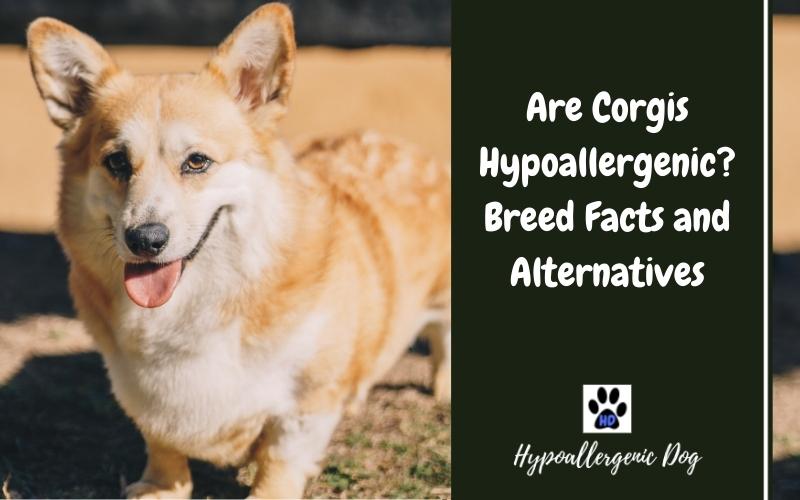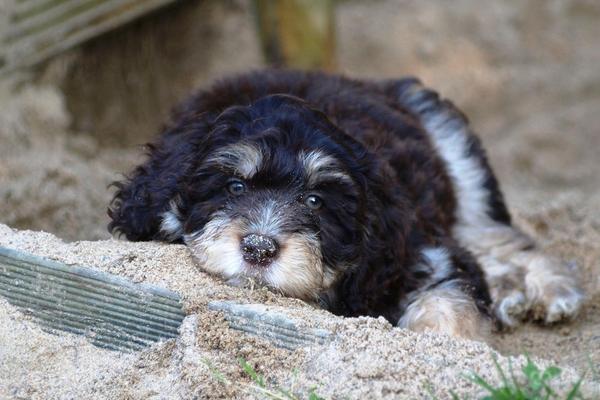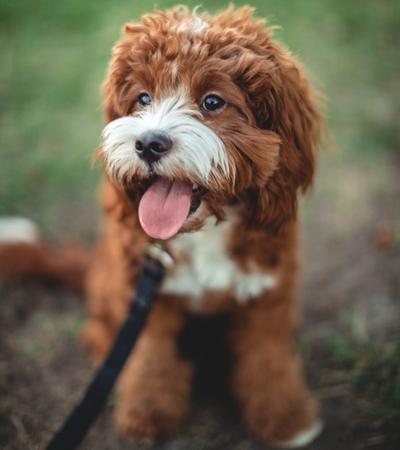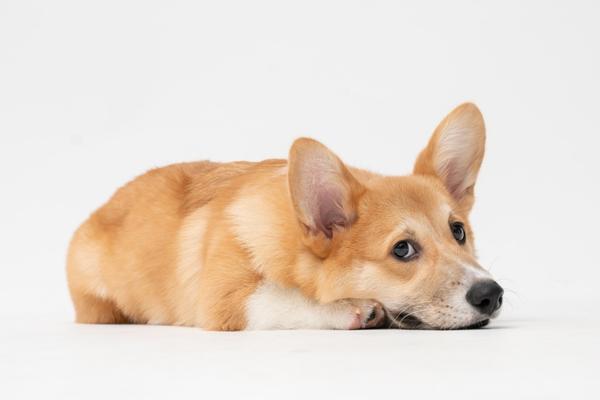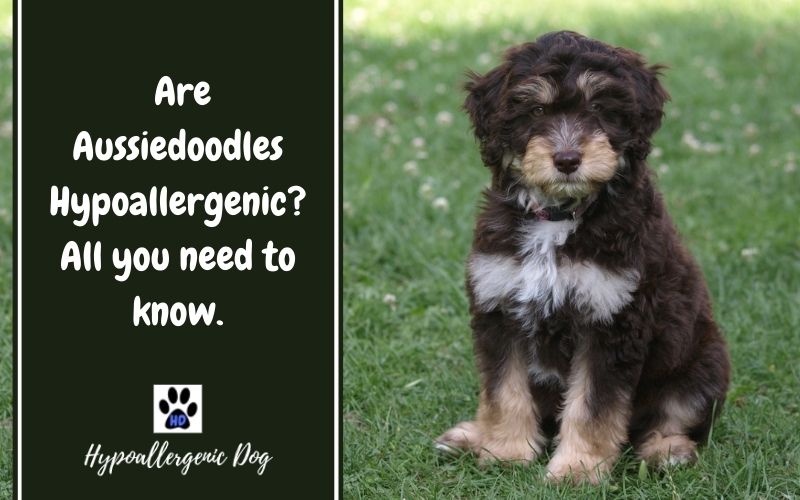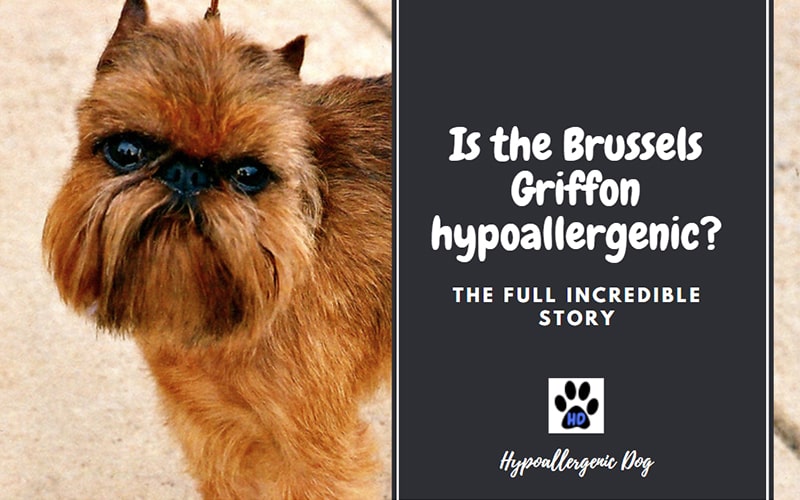Are Corgis Hypoallergenic Dogs?
Are Corgis hypoallergenic? No, this breed isn’t — meaning, if you’re in a pet allergy-suffering household, this breed will not be the best option for you.
Corgis Quick Facts

A Hypoallergenic Dog – Does One Exist?
There has never been a dog you would class as being completely hypoallergenic. Yet, there are dogs that shed very little and also don’t drool. This is important — these two areas cause issues for allergy sufferers.
Allergy sufferers are not sensitive to dogs’ fur, but the proteins carried in their dander and drool. If you would like to find out more, check out our article on What Is a Hypoallergenic Dog?
The Corgi’s Coat
This pure-bred breed comes in a large variety of markings and coat colors, but none of these make the Welsh Corgi hypoallergenic.
All Corgis have a double coat, which consists of an inner layer — also known as an undercoat — that’s soft and keeps them warm. The outer layer — the guard coat — is aptly named as it protects their skin and body.
It’s the thick undercoat that’s usually responsible for the large amounts of shedding that the Corgi is known for.
How Much Do Corgis Shed?
Unfortunately, these dogs shed a lot of fur on a daily basis. They also blow their coats twice a year during the spring/early summer and the fall.
Do Corgis Shed a Lot? Using a shedding scale of one to ten, a Corgi would be around a seven or eight. So, if you have a dog allergy, this breed isn’t going to be suitable for you.
How To Stop Corgis From Shedding To Reduce Allergens
If you’re looking to welcome a Corgi into your family and are wondering how to stop a Corgi from shedding, here are some top tips.
1. Groom Weekly To Reduce Shedding
Regular grooming will help to remove any loose fur and dander. This should include brushing with a comb for any mats, and a topcoat brush for their surface layer of fur. Set aside time for this weekly, and don’t dodge this doggy duty.
2. Maintain a Regular Bathing Routine
You’ll only really need to bathe them once every 4 weeks to remove any excess oil and prevent their coat from tangling. However, if your Corgi particularly likes getting dirty, a bath may be required more regularly.
3. Give Your Corgi a Trim — But Don’t Shave
It’s not advisable to shave a Corgi — you could potentially damage their double coat. However, there is no harm in a little haircut to keep them looking tidy. This will cut down coat length — reducing fur, thus, less shedding.
4. Keep an Eye Out for Signs of Stress/Anxiety
Dogs can experience stress in the same ways as we humans do. But in dogs, the result of this stress can induce excessive shedding. If you think your Corgi is stressed, first figure out why — separation anxiety, boredom, and being frightened of someone or something are a few possible triggers.
5. Consider Dog-friendly Supplements
If your Corgi is suffering from some sort of nutritional deficiency in their diet, it will normally be seen first in their skin and coat. This type of deficiency can cause extreme shedding. You can add a supplement to their food, such as omega 3, to help with dry skin and shedding.
6. Check for Parasites
The Corgi’s double-layered coat and dense fur can easily hide ticks, fleas, or even possible irritants if your dog has allergies. This is where regular grooming will ensure these problems are picked up quickly — check for bugs when you brush your furbaby.
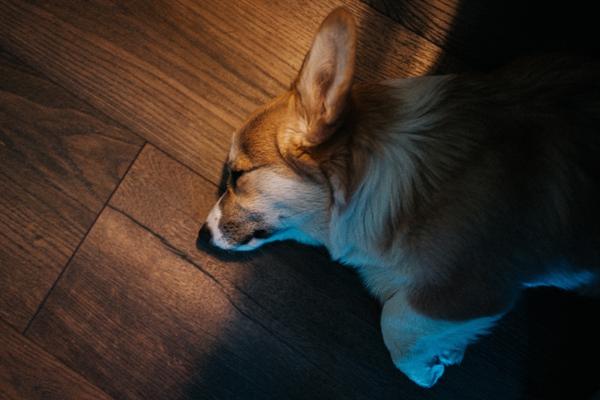
Corgi Hypoallergenic Alternatives
It’s no surprise that the Corgi is a popular breed for families, seniors, apartment life, and more. They’re loyal guard dogs with a fierce independent streak, and their bold personalities are easy to fall in love with.
That said, if you or someone you live with suffer from Corgi allergies, this breed isn’t going to be the best choice for you.
While there are no guarantees of a hypoallergenic Corgi mix due to their high shedding levels, you may find another breed just as loveable as this small cuddly canine. The qualities of a Corgi can be found in other bow-wows too.
A medium herding breed that’s playful, gentle, and out-going with the bonus of being hypoallergenic and having a completely non-shedding wavy coat! They also make fantastic family dogs that are intelligent, so easy to train, and have bundles of energy!
The Aussie has the same needs for mental stimulation and training as a Corgi, so you’re bound to have your hands full with this pooch too. They’re also a herder, like a Corgi, so be prepared that you may get your heels nipped if not trained properly.
While the Brussels Griffon is slightly smaller in size, it’s another expressive, alert, and loving little energetic pup. Their smaller size also comes with slightly less of the highly-energetic traits of a Corgi, but these personality-packed pooches are what inspired the Ewok in the Star Wars movies!
The Brussels Griffon coat comes in two types — either smooth and glossy or rough and wiry. But both types are low shedding, and these dogs don’t drool either.
Finally, the Cavapoo is another breed that hardly sheds or drools and will be excellent in any allergy-friendly home. It’s a mix between a Cavalier King Charles Spaniel and a Poodle, which gives it a thick, yet soft, single coat.
The breed is also family-friendly, however, they put up a little bit more of a fight when it comes to training! The Cavapoo is a companion animal, so will thrive in a busy family setting with lots of company and attention to redirect their behaviors. Plus, they’re amazing watchdogs, and their loyalty and devotion to their family make them natural protectors — like Corgis.
Conclusion
Corgis are high energy, alert and affectionate, but they’re also high shedders, which isn’t the best if you’re sensitive to dog dander or fur.
But there are a great variety of breeds out there that may be more suited to your needs — such as the Cavapoo or even the Aussiedoodle.
So in conclusion, are Corgis hypoallergenic? No, they aren’t, but you can find other pooches that are as popular and as adorable fit for a queen.
Are Welsh Corgis Hypoallergenic?
Unfortunately, neither the Cardigan nor the Pembroke Welsh Corgi are hypoallergenic. The coat type is the same for both — their double coats are shed continually, even though they may only be small.
Do Corgis Produce a Lot of Dander?
Although English royalty loves them, they’re bred to herd cattle and sheep all year round. This means their coats have to keep them warm. And, as a result, during warmer months, they’re known to have blow-outs of fur and dander, which makes them a bad option for allergy sufferers.
Are There Any Corgi Mixes That Are Hypoallergenic?
You won’t find any pure hypoallergenic Corgis. Their high-shedding double coat is universal to the breed. That said, you may find a hypoallergenic Corgi crossbreed that has adopted the coat and shedding traits of the other breed — but there are no guarantees.
What Are the Most Popular Hypoallergenic Family Dogs?
Some of the most popular hypoallergenic family dogs include:
Are Corgis Good Apartment Dogs?
Corgis will do well in an apartment where they have access to a window to watch the world go by. They’re also small in stature and love a cuddle, so can be ideal apartment dogs.
Are Corgis OK for Allergies?
The Corgi isn’t considered a hypoallergenic dog — they shed, so aren’t ideal for those with allergies.
What Corgis Don’t Shed?
There is no pure-bred Corgi that doesn’t shed. Although, you may find a Corgi mix that doesn’t, or is low shedding.

